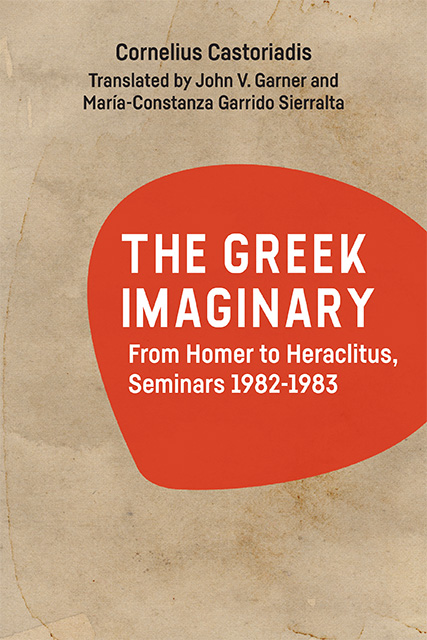Appendix B - Political Thought
Published online by Cambridge University Press: 20 October 2023
Summary
Here is the central point of the matter: there has not been, up to the present, any genuine political thought. There has been, during certain periods in history, a real political activity and the thinking implicit in this activity. But explicit political thought has only been political philosophy, that is to say, the province of philosophy, subordinated to it, enslaved to metaphysics, chained to philosophy’s non-conscious assumptions, and strained by its ambiguities.
This assertion may appear paradoxical. It will appear less so if we recall that by political I mean the lucid activity that aims at the institution of society by society itself, and that such an activity has a meaning as a lucid activity only within the horizon of the question: What is society? What is its institution? With a view to what, this institution? However, the answers to these questions have always been tacitly borrowed from philosophy, which in turn has dealt with them only by violating their specificity through beginning with something else, i.e. the being of society/history as beginning with the divine, natural, or rational being; creative and instituting activity as beginning with conformity to a norm given from elsewhere.
But the paradox is real. Philosophy is born in Greece simultaneously and consubstantially with the explicit political movement (democracy). These two emerge as calling into question the socially instituted imaginary. They arise as interrogations that are profoundly joined through their object: the established institution of the world and of society and its relativization through the recognition of doxa and nomos, which in turn also leads to the relativization of this relativization, in other words, to the search for an internal limit to a movement that is, in itself and in principle, interminable and indeterminate (apeiron). Take the question, “Why is our tradition true and good? Why is the power of the Great King sacred?” Not only does it not arise in an archaic or traditional society; it cannot emerge, and it does not make sense. Greece makes exist—creates ex nihilo—this question. The socially established image (representation) of the world is not the world.
- Type
- Chapter
- Information
- The Greek ImaginaryFrom Homer to Heraclitus, Seminars 1982-1983, pp. 249 - 284Publisher: Edinburgh University PressPrint publication year: 2023

